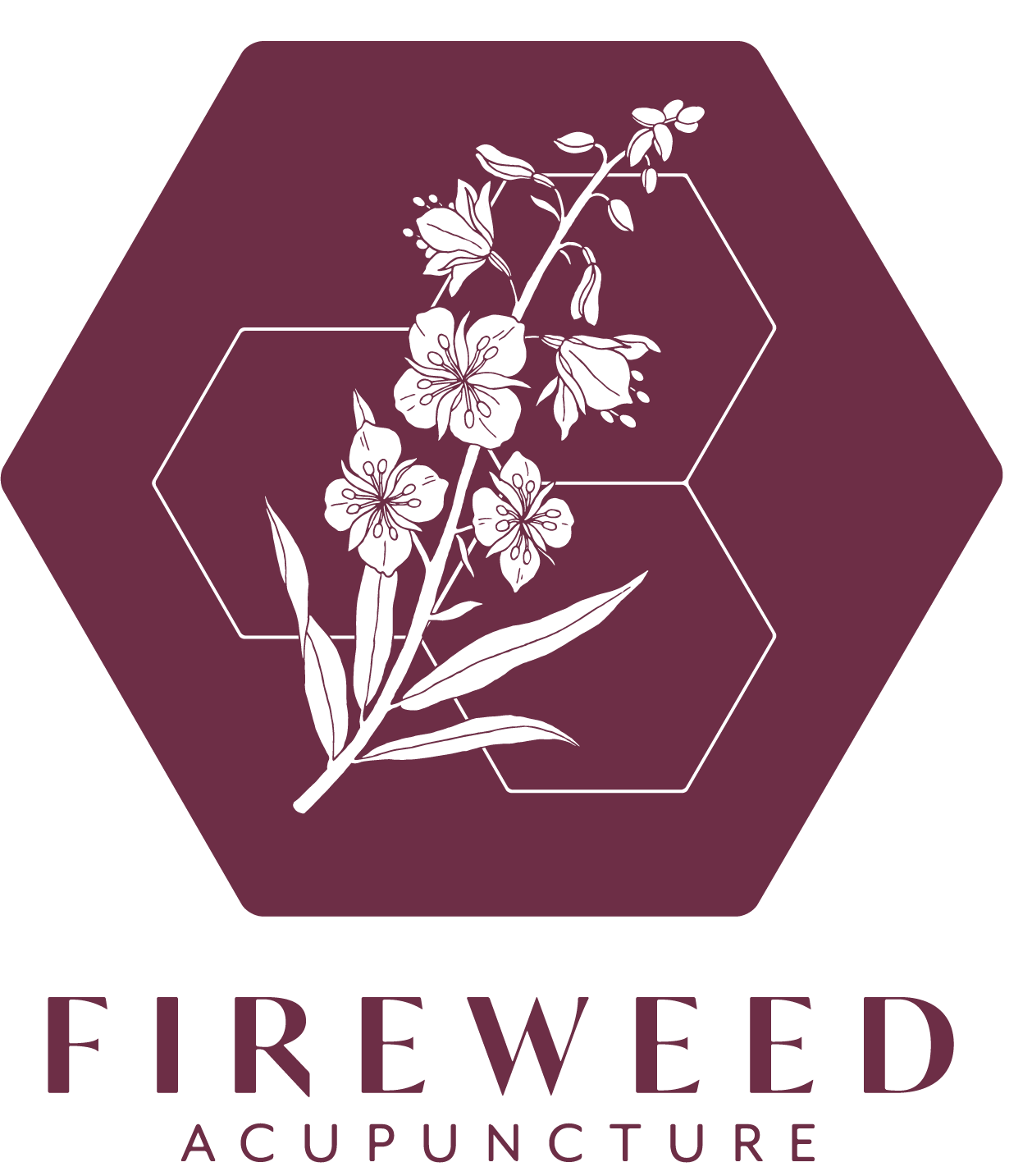FAQ: Licensed Acupuncture and Chiropractic Acupuncture - What’s the difference?
I often field questions from people asking what the difference is between Licensed Acupuncturists providing acupuncture and Chiropractors providing acupuncture. A common sight in Iowa are Chiropractic offices that offer “chiropractic & acupuncture” - but this can be confusing to consumers because they aren’t the same thing!
In this entry, you’ll find:
Background and history of acupuncture
A chart comparing the education and training of Licensed Acupuncturists and Chiropractors providing acupuncture
My recommendations of which type of acupuncture to try and questions to ask your provider (my answer may surprise you!)
A few final thoughts about my treatment philosophy and the importance of being transparent with patients!
Getting into the weeds with this conversation can be very easy, so I will do my best to summarize things! Just like the Dry Needling and Acupuncture article, I think it is essential to have some background knowledge before comparing and contrasting Chiropractic Acupuncture and Licensed Acupuncture, so the history is important!
Side note: I’ve done my best to provide factual information, but this is definitely written from the perspective of someone who is a Chinese medicine provider, so there is some inevitable bias. If you think I missed something or something is incorrect, please feel free to email me!
Background and History
The first thing that is important to understand about acupuncture is that there isn’t just one universal version. Even within the field of Chinese medicine, where Licensed Acupuncturists (LAc’s) fall, there are many ways of “doing” acupuncture - schools of thought, theories of selecting points, styles of needling, etc. There’s a lot of history (like, thousands of years worth) as to why this is the case, but it is pretty likely that people who aren’t in the field aren’t interested in the details, so I won’t get into it here. If it is something you are curious about, absolutely ask me during your next visit!
But this is why you can go to different acupuncturists and experience very different things each time, and why you may work well with some acupuncturists and not with others. This is also why it can be hard, as a consumer, to know what you’re getting when you make an appointment with a provider. It’s easy to think of this as a flaw in the medicine itself, but it isn’t!
Different ways of practicing under a larger common umbrella are common in a lot of fields! For example, mental health providers, such as therapists, are all “therapists” but have different styles and methods for providing therapy - Cognitive Behavioral Therapy (CBT), for example, is one method under the larger umbrella. Each therapist also overlays their practice with their own personal experience and style, which is unique to them. So, too, with acupuncture! Acupuncturists have their overarching teachings - Chinese medicine - as well as particular styles (TCM, 5 Element, Classical, Japanese, Korean, etc.) or specialties (orthopedic, fertility, etc.) that they train in, and then they overlay their personal and clinical experience too.
Next important thing to understand (minor history lesson ahead): during the Communist Revolution in the 1950s in China, the regime attempted to standardize acupuncture and Chinese medicine theory to make it more easily consumable and easier to export to the Western world by matching it more closely with Western medicine. This style of Chinese medicine is called “Traditional Chinese Medicine” (or TCM) and is largely what is taught in most acupuncture schools in the US and is what the Boards acupuncturists take in the US are based on. The TCM style is useful and can (and absolutely does!) help people, but it is not the only form of Chinese medicine. This style is more straightforward to teach and easier to learn compared to less standardized versions, so it has taken off as the standard curriculum in most acupuncture schools.
Because it is easier to teach, TCM is also the form that is often used when teaching other non-acupuncturist professionals how to do acupuncture. There are pluses and minuses to this, but this is usually where many acupuncturists get frustrated: the courses for other professions often take a very abbreviated look at the philosophy, history, and theory associated with acupuncture and Chinese medicine. To some (myself included), this feels disrespectful to the tradition and culture behind Chinese medicine. Also, it can reduce effectiveness - not fully understanding the theory leads to decreased results - and it can paint an inaccurate picture for patients when their first (and maybe only!) acupuncture experience is from someone who isn’t genuinely versed in the system of medicine. Consumers can often have difficulty comparing practitioners who offer different types of acupuncture - but because “acupuncture” isn’t a standardized term, people can claim to provide it, even if it is a pared-down version.
(Whew, okay. You made it. The comparison/contrasting section is just ahead.)
Comparing Education and Training
Sources for information in the chart above:
Licensed Acupuncture: Iowa Board of Medicine information on Acupuncturist Licensing, Clean Needle Technique certification information, NCCAOM Acupuncture Boards information (including minimum education requirements, board contents, etc.)
Chiropractic Acupuncture: Iowa Board of Chiropractic information on Chiropractic Acupuncture (including continuing education information), NBCE Acupuncture testing information, DABCA information
My Recommendations
When does it make sense to see a Chiropractor for acupuncture?
If you’re already seeing a chiropractor regularly and have a relatively simple concern that you’d like to try acupuncture for (such as new-to-you muscle or joint pain, nausea, simple digestive concerns, etc.), then asking them to try acupuncture with you may be a good idea. These types of concerns are easier to treat with simplified acupuncture point selection and protocols, so you may find a resolution in this situation!
When should I see a Licensed Acupuncturist for acupuncture?
Here are a few examples of situations where it makes the most sense to seek out a Licensed Acupuncturist:
You are not otherwise seeing a chiropractor;
You have tried chiropractic acupuncture and haven’t had the desired results;
You have chronic or complex concerns, such as autoimmune conditions, fibromyalgia, chronic fatigue or pain, long-term headaches/insomnia/digestive issues/etc.;
You are curious about acupuncture and want to visit with someone well-versed in all aspects of Chinese medicine (not just acupuncture);
You’re not interested in using acupuncture needles for treatment but still are interested in getting treated with Chinese medicine techniques.
What should I ask any practitioner that I see for acupuncture?
Here are a few recommendations on what to ask any practitioner you are seeing for acupuncture and Chinese medicine:
What specific training have you received in acupuncture?
What training do you have regarding my condition?
Have you treated patients with my condition in the past?
Any and all of the safety questions found at the end of the Dry Needling and Acupuncture entry.
Last Thoughts
As I’ve mentioned in another entry, my philosophy with patients is helping them find providers that will help lead to the results they are looking for, even if that isn’t me! It is also paramount to maintaining patient safety. I also think it is essential to honor the core philosophy and tradition of Chinese medicine, and (a potential hot take) I don’t think simplifying or even removing parts of the theory and philosophy of the medicine to make it faster or easier to teach is the right way to approach it. I also think oversimplifying Chinese medicine will make it less effective, which doesn’t help anyone! East Asian medicine is a complete system of medicine that truly just can’t be distilled down to 100 hours. This is disrespectful (at best) to the East Asian people and cultures that have learned, developed, refined, and generously shared this knowledge with those of us in the West. It also removes the entire structure of the treatment, which can lead to less high-quality care (and possibly unsuccessful results).
Finally, practitioners need to be transparent and accurate with patients about the extent of training they have received and their experience level; someone claiming to be an acupuncturist or have a Diplomate of Acupuncture when they do not have a Master’s in Acupuncture or Chinese Medicine and/or haven’t passed the three acupuncture boards from NCCAOM is not a fair representation of their training and is misleading to patients - which is not ethical.
Ultimately, I think patients are best served by seeing people who specialize in their focus of medicine rather than someone who has spread themselves over many different types of training. This can also include acupuncturists who specialize in many additional modalities! This is, of course, my personal view, but it seems to me that it can be hard to know and understand many complex theories deeply and keep up to date on all of them.
I also believe that patients are more likely to find results with practitioners they know and trust, so if seeing someone you already have an established relationship with provides that for you, that is what you should do. But, if you are not seeing the results you’d like or want to go deeper into the full practice of Chinese medicine, meeting with a Licensed Acupuncturist may be a good step to try!
Did I miss something? Do you have additional questions? Feel free to email me!






